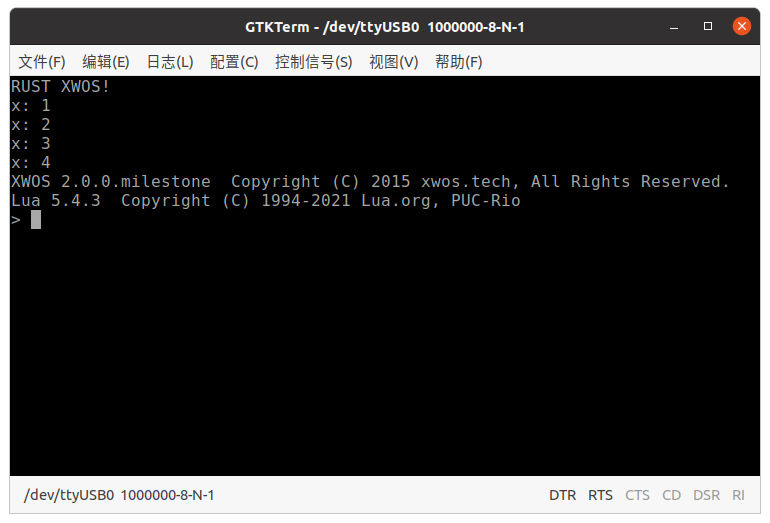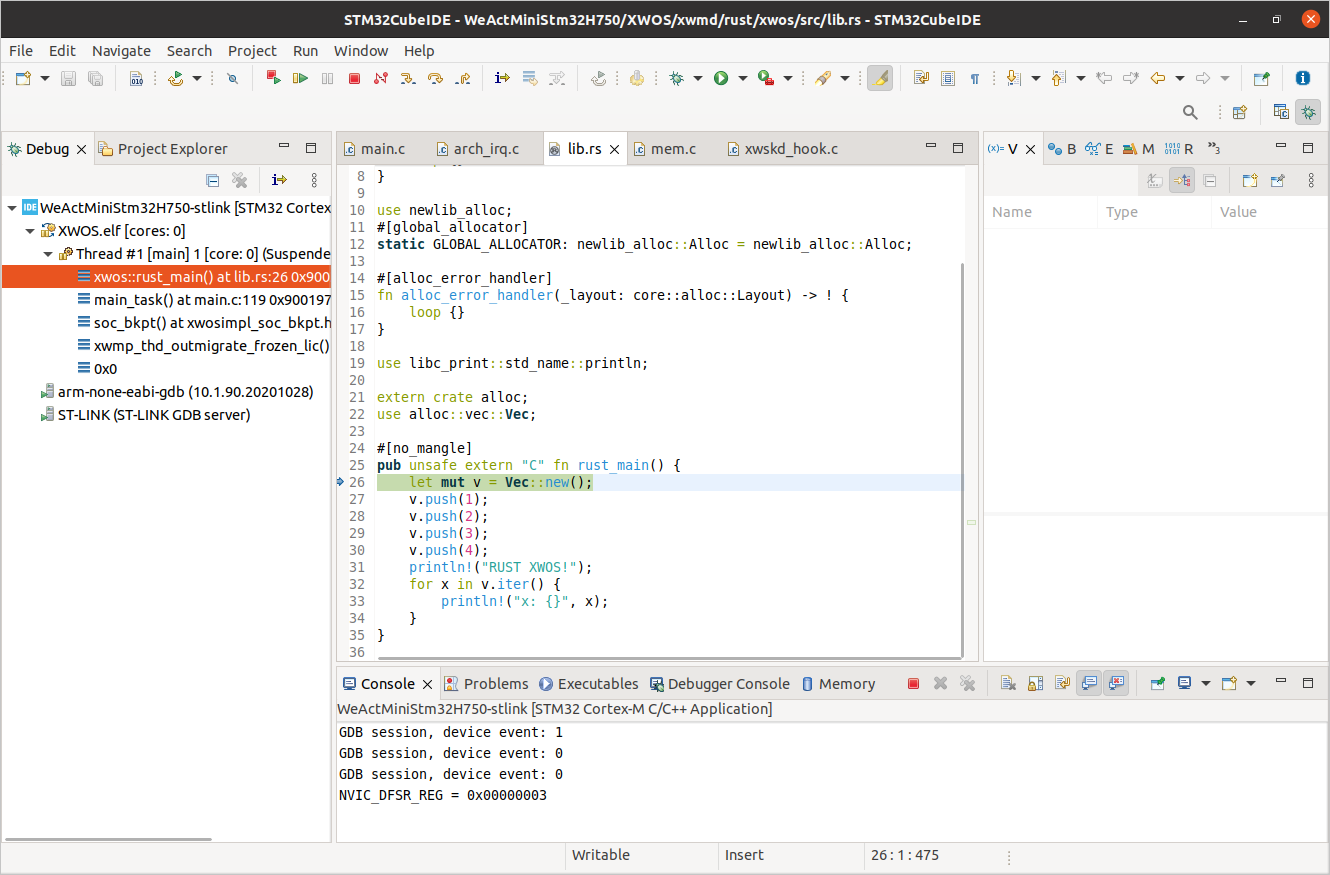Rust方案初验证
少于1分钟
Rust的std库
RUST的标准库包括:
在嵌入式系统中,比较有用的是 core 与 alloc 。
虽然在嵌入式环境中,可以通过 #![feature(restricted_std)] 强行使用Rust的std库,
但随着功能的增加,问题也会越来越多,故转向使用 #![no_std] 。
编译
在 .cargo/config.toml 增加编译:
[unstable]
build-std = ["core", "alloc"]
global_allocator
可用来实现自己的内存分配函数的属性,可参考文档std::alloc。
在lib.rs上可以搜索到newlib-alloc,可直接用。
在 Cargo.toml 中增加
[dependencies]
libc = "0.2"
newlib-alloc = "0.1"
libc-print = "0.1"
编译libc时需要条件选择 newlib ,在 .cargo/config 增加:
[build]
rustflags = [
"--cfg", "unix",
"--cfg", "target_env=\"newlib\"",
]
编写测试代码
#![no_std]
#![feature(alloc_error_handler)]
use core::panic::PanicInfo;
#[panic_handler]
fn panic(_info: &PanicInfo) -> ! {
loop {}
}
use newlib_alloc;
#[global_allocator]
static GLOBAL_ALLOCATOR: newlib_alloc::Alloc = newlib_alloc::Alloc;
#[alloc_error_handler]
fn alloc_error_handler(_layout: core::alloc::Layout) -> ! {
loop {}
}
use libc_print::std_name::println;
extern crate alloc;
use alloc::vec::Vec;
#[no_mangle]
pub unsafe extern "C" fn rust_main() {
let mut v = Vec::new();
v.push(1);
v.push(2);
v.push(3);
v.push(4);
println!("RUST XWOS!");
for x in v.iter() {
println!("x: {}", x);
}
}
- 串口终端输出

- 调试过程

测试环境
硬件环境
- WeActMiniStm32H750
- MCU:STM32H750
- 说明:此工程已对接好newlib(如
malloc()、printf()等标准函数),可为Rust的库提供底层支持。
调试环境
- IDE:STM32CubeIDE
- 需要增加Rust插件:Corrosion: Rust edition in Eclipse IDE
实验代码
- 代码仓库:
git clone --recursive https://gitee.com/xwos/WeActMiniStm32H750.git - commit
cd XWOS
git pull
git checkout -b rust-bringup f8fcad24daa4912e4de0886c30e02343b6045dab